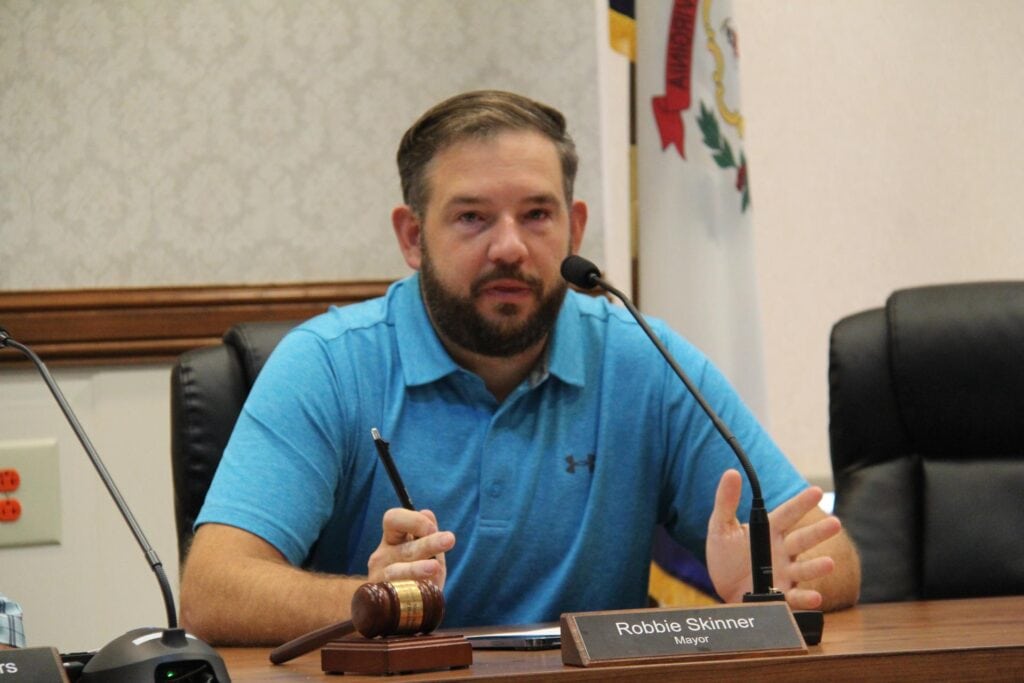PHILIPPI, W.Va. — Dr. Brandi Gaertner, assistant professor of environmental science at Alderson Broaddus University, has conducted research on the impact climate change has on evapotranspiration, leading to a published article in the Science of The Total Environment.
The title of her article is “Climate, forest growing season, and evapotranspiration changes in the central Appalachian Mountains, U.S.A.” Gaertner has a longstanding history in researching the physical sciences.
The primary purpose of her study was to identify how climate change has impacted the length of the growing season, evapotranspiration, and surface flow of rivers which directly affects water resources in the central Appalachian region. This area is responsible for providing 30 percent of drinking water to downstream cities such as Washington D.C.
Simply put, the higher the temperatures, the longer trees stay green, the more water trees use (evapotranspiration), and the less water available for rivers and drinking water.
Due to climate change, trees develop leaves earlier in the spring and stay green longer into the fall. The article finds that since 1982, the growing season has increased by an average of 22 days, which has led to a 0.5 mm increase in evapotranspiration. In turn, that makes less drinking water available for cities in the central Appalachian region.
Gaertner says that the next steps in her research would be to identify how different ecosystems in this specific region are affected by climate change, to understand what climatic variables drive evapotranspiration changes, and how it applies to ecosystem sensitivity and growing season length.
“Our preliminary data show that water vapor is important for evapotranspiration, which means that humid air leads to less evapotranspiration and likely less streamflow,” said Gaertner. “However, increased temperature combined with longer growing seasons can increase evapotranspiration, and decrease streamflow.” Gaertner explained that this process is extremely complex and requires a detailed understanding of the process.
No stranger to studying the outdoors and the physical sciences, Gaertner completed her master’s research on the impact of fallen trees in streams on brook trout populations in northern Pennsylvania. Her interest in the physical sciences comes from her childhood spent outside with her brother and playing outdoor sports.
“I love to do research that I can see in the real world, and that can possibly make a difference,” said Gaertner. “In fact, when I have completed personality tests, it identifies my personality as fitting well in ‘atmospheric sciences, hydrological, environmental science, and as a professor,’ so I guess I made the right decision!”
In the near future, Gaertner hopes to develop two new courses at AB: python coding in geographic information sciences (GIS) as well as watershed modeling in GIS. She plans to start a sustainability club with environmental science students with the intention of reversing the misconceptions behind climate change as well as teach students how to help stop climate change.
Dr. Gaertner, originally from York County, Pennsylvania, earned a bachelor’s degree in biology with a minor in chemistry at Indiana University of Pennsylvania. From there, she continued onto Clarion University of Pennsylvania to obtain a master’s degree in environmental biology. She also holds a doctorate in forestry and natural resource management from West Virginia University.
For more information about Gaertner’s research on climate change, contact her at gaertnerba@ab.edu or visit her website at https://brandigaertner.weebly.com.













